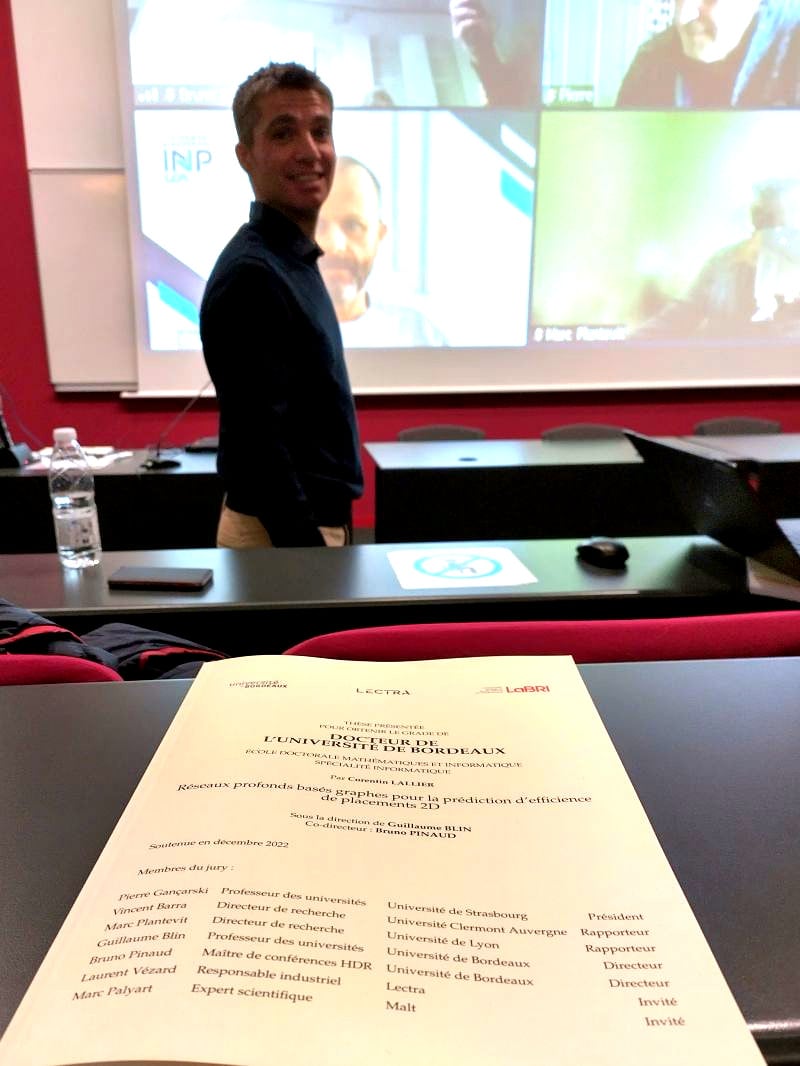PhD Defence
Last week, I completed a major milestone: my PhD defense. It was a big day after years of hard work.
 Successful defense. Image from Marc Palyart.
Successful defense. Image from Marc Palyart.
This is a formal exercice, requiring respect of protocols. Below I’ll present the main steps of this academic presentation of your research. You can also find a link to my presentation slides (in French).
During a defence, you present your research to your jury (most have already read it). You use slides, share new materials and answer questions at the end.
Here’s a quick summary:
- Preparation time:
- A few days before, prepare things like:
- Prints of you manuscript, water bottles and restaurant reservation.
- Visit the amphitheatre, and test the command console in case of technical problem when sharing your slide (or be sure to have an expert with you on the day). - The day of your defence:
- Be sure to be 30-40 min early to setup the room: place a water bottle and a manuscript in front of each place of the jury.
- Make a smoke test: project your slides
- If you have a remotly part, check everything is OK, that the zoom room is ready, etc.
- Presentation: this part lasts 40 minutes, where you explain your work and findings.
- Question time: Usually 10-15 minutes per jury member. Think of it as a discussion between expert in their fields. People are here to support you and your career. You’ll be great 💪.
- Result: You successfully defended your thesis! Yay!
- Restaurant: (or a ‘pot’) with directors, friends, or jury members. This is the nice moment to unwind a bit.
If you’re preparing for your doctoral defense, here are my tips:
- As the PhD thesis is a very formal document, the defense presentation should be very visual. Use one image per slide and bullet points facts.
- Simplify complex concepts. Keep main points accessible for non-experts.
- Practice your presentation, at least 3-4 times. I presented at work, at lab, and in the amphitheather the day before.
- Anticipate potential questions (often about unique or surprising aspects of your work) and prepare answers.
It’s also helpful to attend other defenses to get a feel for the process. Remember, if you are nervous, once you start, you’ll your stride and let your passion shine. Remember, you have also made most of the way.
And my full PhD dissertation (also in French)
In conclusion, a PhD defense is a challenging yet rewarding experience. It marks the end of a major chapter of your professional and academic journey and the start of new opportunities.
I’m grateful for the support I received along the way and excited about what lies ahead.
Have a strong defense, thank you and see you soon!